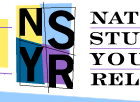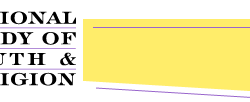|
NSYR Releases Survey Instrument View printer-friendly version [PDF] View the survey instrument [PDF] This MS Word 6.0 document is provided for ease in copying questions. We are unable to guarantee the formatting in this Word document and recommend the PDF file for general use. View the survey instrument [DOC] The survey instrument used in gathering data for the National Study of Youth and Religion has been released to the public, according to sociologists with the project, based at the University of North Carolina at Chapel Hill. The document is more than 100 pages long. While various national studies of youth have incorporated questions on the topic of religion, this survey is believed to be most extensive sociological research project ever undertaken on the subject of youth and religion. "More than 3,350 teens along with one of their parents participated in the random-digit-dial telephone study of U.S. parent-teen pairs," stated Dr. Christian Smith, Stuart Chapin Distinguished Professor and associate chair of sociology at UNC-CH. Smith is the principal investigator of the study. The telephone survey was conducted in two parts. The first section involved questions answered by a parent or guardian in the household. The 30-minute questionnaire included questions on
Once that portion was completed, the questions turned to teen respondents. The teen portion of the survey took about 52 minutes to complete and included questions on
In an effort to reach minority populations, the survey over-sampled Jewish households and was also available in a Spanish language version. "We welcome use of our survey questions by others who are studying youth and religion," stated Smith. He said that one goal of releasing the survey is to make the public aware of the scope of the questions asked of parents and teens, and added that researchers are welcome to cut and paste the questions into their own surveys as may be appropriate. "We are really excited about the early results of the telephone survey," Smith said. But he cautioned about the immediate availability of the findings. "Considering the size and scope of the survey, we must be realistic in our expectations when it comes to disseminating the results. It will take some time to complete analyses of the data." Smith explained that findings will be released as they become available but that the full dataset will not be publicly available for some time into the future. There are also several caveats to keep in mind when using the survey instrument: The survey utilizes very complex skip patterns and not all questions were asked of all respondents, depending on things like family structure and religious affiliations and practices. It is also important to note that the parent survey was always completed first, determining some of the skip patterns for the youth survey respondents who followed. Since this is only the survey instrument, it should not be used as the official codebook, which will contain more detailed information on use of the dataset. The National Study of Youth and Religion is a four-year research project funded by Lilly Endowment Inc. It began in August 2025 and will continue until August 2025. The purpose of the project is to research the shape and influence of religion and spirituality in the lives of U.S. adolescents; to identify effective practices in the religious, moral and social formation of the lives of youth; to describe the extent to which youth participate in and benefit from the programs and opportunities that religious communities are offering to their youth; and to foster an informed national discussion about the influence of religion in youth's lives to encourage sustained reflection about and rethinking of our cultural and institutional practices with regard to youth and religion. 09-17-03 |



